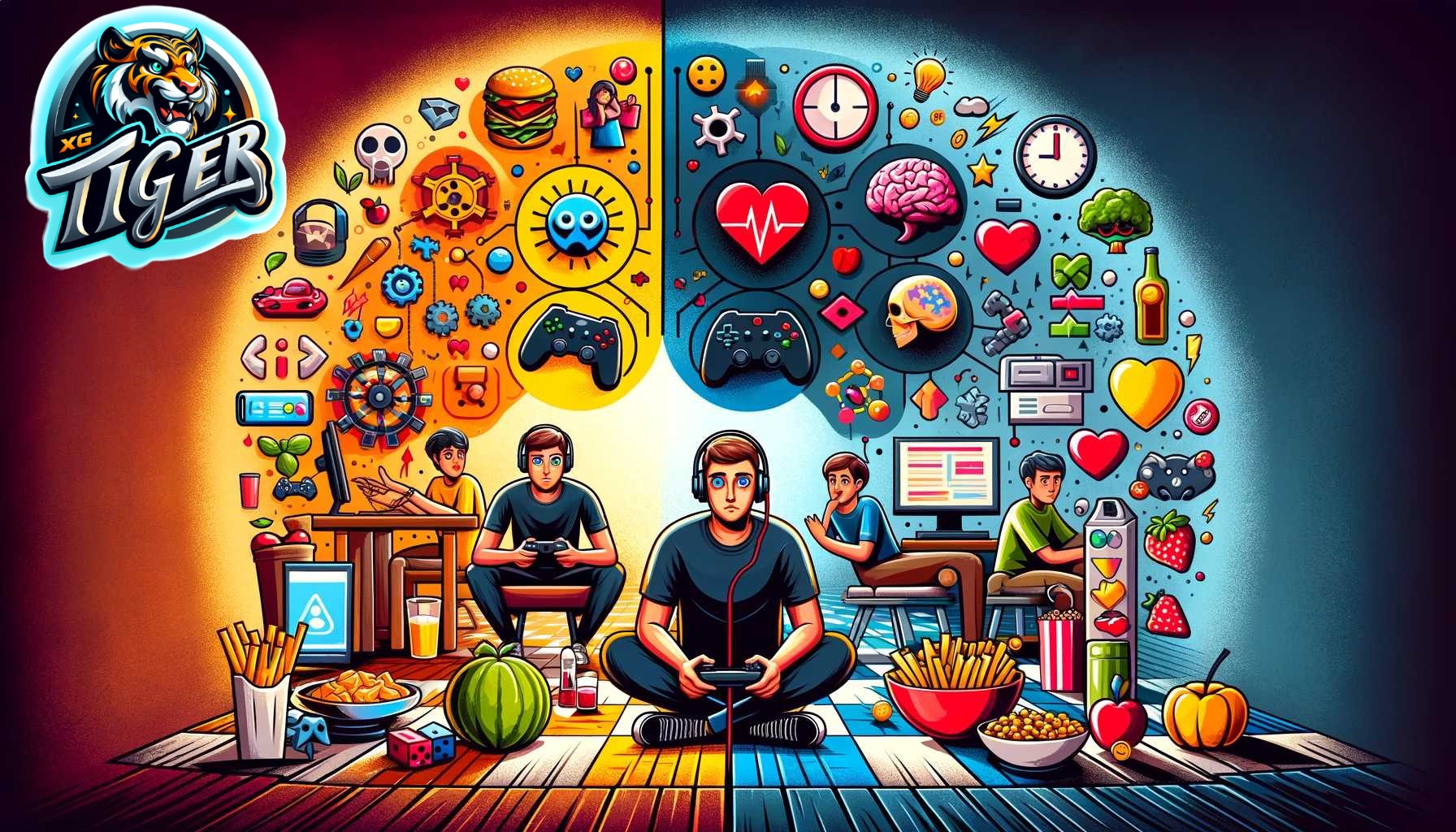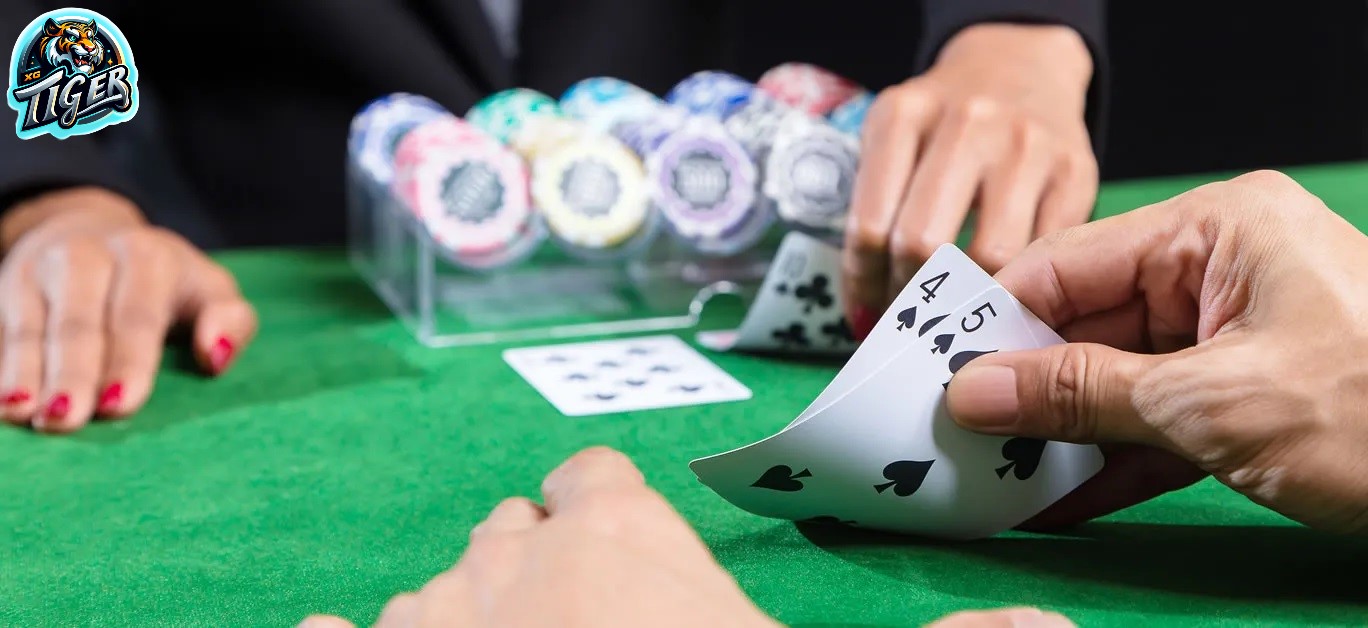Table of Contents

Online Gambling or Gambling has long been considered a potentially problematic pastime in terms of both financial and emotional consequences. However, the relationship between gambling behavior and emotional health is complex. Recent studies show a two-way relationship, with mental health impacting online gambling patterns and vice versa.
In this Xgtiger Casino article, we’ll explore research on Gambling motivations related to emotional states, the short- and long-term mental health ramifications of Problem Gambling, and how therapeutic approaches can help break the destructive cycles. Investigating the latest statistics, Big Bass Slash tips and analysis provides insight into this high-stakes interconnection.
The Emotional Driver Behind Gambling Behavior
Gambling activities are often considered entertainment, fun, or less fun. However, psychology reveals a darker emotional subtext that drives Gambling for many people. Studies have identified contributing factors such as boredom, loneliness, stress relief, problem avoidance, and the human tendency to overestimate probabilities and underestimate risks.
In essence, complex emotional dynamics and psychological biases set the stage for Gambling patterns to develop and eventually spiral out of control. Understanding these roots helps in addressing behavioral problems in Gambling.
Driving Gambling Behavior
Boredom/Excitement
The joy of games of chance provides an escapist distraction from the mundane or unpleasant elements of everyday life. Gambling offers the necessary thrill of excitement. However, what starts as entertainment can easily escalate over time.
Prevention/Stress Relief
Gambling also allows a mental break from dealing with complex concerns or responsibilities that weigh on one’s mind. This avoidance often provides temporary relief from anxiety, but ultimately makes the issues worse.
Social Connection
For lonely individuals, time spent Gambling can provide a sense of connection and community with others in a casino, racetrack, or bingo hall. Again, these Gambling-only connections rarely translate into long-term or deeper relationships.
Cognitive Distortions
Human psychology includes the same mental errors that affect Gambling. These include illusions of control, higher than realistic odds of winning, remembering wins over losses, wanting to keep playing to make up for losses, and more.
Effects of Gambling addiction on mental health
Problem Gambling clearly takes a toll on emotional health and well-being. Between 20-50% of Gambling addicts also struggle with drug addiction or mental health issues such as clinical depression, anxiety, ADHD, trauma, or bipolar disorder. Alternatively, those dealing with mental health conditions may use Gambling to self-medicate, manage emotions, or reduce symptoms in the short term.
However, excessive Gambling often worsens existing issues or creates new ones:
Depression
Problem gamblers are 2-3 times more likely to suffer from depressive disorders due to factors such as financial loss, relationships, self-esteem, sense of meaning/purpose, etc. This desperation creates a vicious cycle where Gambling seems to be the only escape.
Anxiety
Uncertainty of Gambling wins/losses paired with increased financial despair drives increased anxiety. Physical anxiety symptoms further perpetuate the urge to gamble for temporary relief.
Substance Abuse
Those struggling with Gambling addiction have high levels of alcohol, drug, tobacco, and even caffeine dependence as part of unhealthy coping strategies. Mixing substances with Gambling provides short-term distraction but at the cost of long-term damage.
Suicide Risk
For those experiencing financial ruin, broken relationships, deep shame/guilt, and a seeming inability to quit, suicide begins to feel like the only way out of desperation. 13-20% of Gambling addicts have attempted suicide – double the risk in the general population.
| Disorder/Issue | % Among Problem Gamblers | General Population % |
| Substance Abuse | 25-63% | 9% |
| Alcohol Abuse | 28-63% | 6% |
| Drug Abuse | 17-46% | 3% |
| Depression | 50-80% | 10% |
| Anxiety | 37-45% | 11% |
| Suicide Attempts | 13-20% | 1% |
Sources compiled from the American Psychiatric Association, the US National Library of Medicine, and the National Center for Responsible Gaming
Clearly, the more severe the Gambling problems, the higher the likelihood of experiencing impaired emotional health and well-being – often for years even after Gambling stops.
Therapeutic approaches to address the emotional impact of Gambling
Traditional Gambling addiction rehab focuses primarily on practical obstacles, financial concerns, developing healthier habits/hobbies, rebuilding broken life elements, and external controls/accountability.
However, newer treatment perspectives recognize the important role that addressing underlying psychological and emotional factors associated with Gambling plays in maintaining long-term recovery. Surveys of recovering gamblers highlight distress tolerance, managing unpleasant emotions, resolving past trauma, finding purpose/meaning, etc. as the key to lifelong change.
While the field is still evolving, psychotherapy that focuses directly on the emotional roots of disordered gambling shows tremendous promise in establishing long-term well-being, satisfaction, and growth for those stuck in patterns of gambling and taking chances. which is self-destructive.
Some therapy strategies that show promise include:
Cognitive-Behavioral Therapy
Kinikilala at hinahamon ang mga cognitive distortion tungkol sa mga posibilidad ng Gambling, kasanayan kumpara sa suwerte, mga nakikitang benepisyo, atbp. Nagbubuo din ng mga bagong gawi sa pag-uugali at nagtuturo ng mga diskarte sa pagharap.
Motivational Interviewing
Promotes internal rather than externally imposed motivation for change by exploring patient ambivalence in a non-judgmental setting.
Group Therapy
Provides social support and accountability resources that are often lacking for those experiencing shame/guilt in excessive Gambling.
Psychodynamic Therapy
Unlocks and resolves unconscious psychological tensions, buried emotions, past trauma/grief that drives Gambling through practices such as free association.
Finding Purpose and Meaning
Helps transform Gambling from a maladaptive to an adaptive coping mechanism by aligning life with deeper values and sources of meaning.
Summary
The problem of Gambling or Online Gambling continues to increase worldwide as casual bets and entertainment become addictive and harmful behavior for a relevant percentage. At the same time, mental health disorders and suicidal despair are also on the rise, especially among younger demographics.
Within this context, understanding the interplay between Gambling activities and emotional health becomes even more important. Ongoing scientific inquiry that demonstrates evidence-based connections guides the prevention and treatment of associated conditions.
This exploration touches on the complex relationship of Gambling with mental health and life satisfaction. Let the conversation continue as we develop smarter visions and policies that balance personal freedom with social responsibility. Too many important lives hang in the balance to not confront this addiction with urgent empathy and wisdom at this critical turning point.
Conclusion
Are you an avid gaming fan and want to know how to bet on online casino games? At Xgtiger, you’ll get the latest information on this year’s best casino games and a variety of gaming options, all in one place.
To start your online gambling journey, all you need to do is create an account on the site, deposit funds and you’ll be ready to bet on the best and most anticipated casino games.
Frequently asked questions
An estimated 96% of people with gambling problems have at least one other psychiatric disorder. Substance use disorders, impulse-control disorders, mood disorders, and anxiety disorders are particularly common among people with gambling problems (Potenza, M. N., et al., Nature Reviews Disease Primers, Vol.



